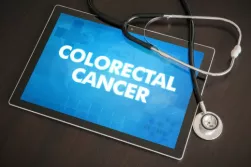THOUSAND OAKS, CA — Amgen today announced that the U.S. Food and Drug Administration (FDA) has approved IMDELLTRA™ (tarlatamab-dlle) for the treatment of adult patients with extensive-stage small cell lung cancer (ES-SCLC) with disease progression on or after platinum-based chemotherapy. IMDELLTRA has received accelerated approval based on the encouraging response rate and duration of response (DoR) observed in clinical studies. Continued approval for this indication may be contingent upon verification and description of clinical benefit in a confirmatory trial(s).
"The FDA's approval of IMDELLTRA marks a pivotal moment for patients battling ES-SCLC. This DLL3-targeting therapy in ES-SCLC comprises a transformative option demonstrating long-lasting responses in pretreated patients," said Jay Bradner, M.D., executive vice president, Research and Development, and chief scientific officer at Amgen. "This approval further demonstrates our commitment to addressing aggressive cancers through our second FDA-approved Bispecific T-cell Engager (BiTE®) molecule. IMDELLTRA offers these patients who are in urgent need of new innovative therapies hope, and we're proud to deliver this long-awaited effective treatment to them."
"Lung cancer is a complex and devastating disease, and less than 3% of patients with ES-SCLC live longer than five years," said David P. Carbone, M.D., Ph.D., professor of internal medicine and director of the James Thoracic Oncology Center at the Ohio State University Medical Center. "In the DeLLphi-301 trial, the median overall survival was 14.3 months, with 40% of patients responding to treatment with tarlatamab. These responses were remarkably durable, representing a major advancement in the SCLC treatment paradigm."
IMDELLTRA is the first and only DLL3-targeting Bispecific T-cell Engager therapy that activates the patient's own T cells to attack DLL3-expressing tumor cells.
"After decades of minimal advancements in the SCLC treatment landscape, there is now an effective and innovative treatment option available," said Laurie Fenton Ambrose, co-founder, president, and CEO of GO2 for Lung Cancer. "Today's FDA approval marks a significant milestone for the SCLC community as the availability of a targeted bispecific therapy brings forward new possibilities to those living with this aggressive disease."
The FDA accelerated approval of IMDELLTRA is based on results from the Phase 2 DeLLphi-301 clinical trial that evaluated IMDELLTRA in patients with SCLC who had failed two or more prior lines of treatment, and who had received the 10 mg every two weeks dosing (Q2W) regimen. Results from the study found that IMDELLTRA at the 10 mg Q2W dose (N=99) demonstrated a robust objective response rate (ORR) of 40% (95% Confidence Interval [CI]: 31, 51) and median DoR of 9.7 months (CI: 2.7, 20.7+). The median overall survival (mOS) was 14.3 months, with final and complete survival data yet to mature.
The IMDELLTRA label includes a Boxed Warning for cytokine release syndrome (CRS) and neurologic toxicity, including immune effector cell-associated neurotoxicity syndrome (ICANS), in addition to warnings and precautions for cytopenias, infections, hepatotoxicity, hypersensitivity, and embryo-fetal toxicity. The most common (> 20%) adverse reactions reported among patients were CRS (55%), fatigue (51%), pyrexia (36%), dysgeusia (36%), decreased appetite (34%), musculoskeletal pain (30%), constipation (30%), anemia (27%), and nausea (22%). Permanent discontinuations due to treatment-emergent adverse events (TEAEs) were infrequent (7%). CRS was largely confined to the first and second dose, predominantly grade 1 or 2, and was generally managed with supportive care.



